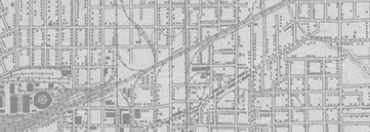


Back
Handwritten letter from Jacqueline Kennedy to John Steinbeck, 03/08/1964
Handwritten letter from Jacqueline Kennedy to John Steinbeck dated March 8, 1964. The letter is three pages, front and back. The body of the letter is written in black ink on letterhead that reads "Mrs. John F. Kennedy" in black printed text. There is a black border around the edge of the front of each page. In the letter Jacqueline Kennedy reiterates her request for John Steinbeck to write a book about her husband. She describes the pain of reminiscing about her late husband and that "It was HE that mattered - he was so alive." She encourages Steinbeck to decide soon about whether or not he will write a book about President Kennedy because she and the rest of the Kennedy family will need to move on with their lives and "stop thinking about Jack every minute of the day and night." She states that she can speak of him now only because it is how she remains connected to him. Jacqueline Kennedy was accustomed to carefully crafting and controlling the public image of her family, and ultimately, she recognized the importance of trying to control the story of President Kennedy's death and legacy, particularly through publications. In a touching and very personal conclusion she pleads with Steinbeck to make the effort on behalf of her husband: "But I feel one thing so strongly - we must all make the most awful effort - no matter what it costs us - for John Kennedy - because he made that effort all his life for us - in a little way it is me tonight writing you this letter - just sitting at my desk with mail piled over my head - and all I want to do is go to sleep - because that is the most longed for time of day - when you are unconscious - but you put it off 2 hours and answer letters for and about Jack. So if you loved Jack you must do that too - and make people know that we are back to the Stone Age now - but if they will just believe in all that Jack believed in - they will see some little ray of light before they die."
Handwritten letter from Jacqueline Kennedy to John Steinbeck, 03/08/1964
03/08/1964
Paper
9 1/4 × 6 1/4 in. (23.5 × 15.9 cm)
The Sixth Floor Museum at Dealey Plaza Collection
2019.104.0002
While Nobel prize-winning author John Steinbeck appreciated President Kennedy's patronage and support of the arts and even attended the President's Inauguration in 1961, he never ended up writing the book Jacqueline Kennedy begged him to write before his death in 1968. - Stephanie Allen-Givens, Collections and Exhibits Manager
Steinbeck scholar Dr. William Ray described John Steinbeck as a "staunch New Deal Deal Democrat with small town Republican roots and a record of wartime advice to his hero Franklin Roosevelt..." Steinbeck supported two-time Democratic presidential nominee Adlai Stevenson over John F. Kennedy in 1960. However, once Kennedy secured the Democratic nomination, Steinbeck actively supported him and attended Kennedy's 1961 inauguration, after being personally invited by the Kennedys. Steinbeck met with President Kennedy on several occasions and was selected by the president to receive the Medal of Freedom, though Kennedy did not live to present the honor himself. (It was presented by President Johnson in September 1964.) On November 22, 1963, Steinbeck and his wife Elaine were in Warsaw on a U.S. cultural mission. Deeply impacted by the assassination, the Steinbecks attended a memorial service at a cathedral in Vienna. Upon his return to the United States, Steinbeck wrote a condolence letter to Mrs. Kennedy. According to Steinbeck biographer Jackson Benson, Mrs. Kennedy thought that Steinbeck was "the writer most suitable" to write President Kennedy's definitive biography. Ultimately, Steinbeck declined because the book idea he had in mind was not an "orthodox biography." Benson writes that Steinbeck never completed his own autobiography for much the same reason. Steinbeck died at the age of 66 on December 20, 1968. -- Stephen Fagin, Curator
Handwritten letter from Jacqueline Kennedy to John Steinbeck, 03/08/1964
Handwritten letter from Jacqueline Kennedy to John Steinbeck dated March 8, 1964. The letter is three pages, front and back. The body of the letter is written in black ink on letterhead that reads "Mrs. John F. Kennedy" in black printed text. There is a black border around the edge of the front of each page. In the letter Jacqueline Kennedy reiterates her request for John Steinbeck to write a book about her husband. She describes the pain of reminiscing about her late husband and that "It was HE that mattered - he was so alive." She encourages Steinbeck to decide soon about whether or not he will write a book about President Kennedy because she and the rest of the Kennedy family will need to move on with their lives and "stop thinking about Jack every minute of the day and night." She states that she can speak of him now only because it is how she remains connected to him. Jacqueline Kennedy was accustomed to carefully crafting and controlling the public image of her family, and ultimately, she recognized the importance of trying to control the story of President Kennedy's death and legacy, particularly through publications. In a touching and very personal conclusion she pleads with Steinbeck to make the effort on behalf of her husband: "But I feel one thing so strongly - we must all make the most awful effort - no matter what it costs us - for John Kennedy - because he made that effort all his life for us - in a little way it is me tonight writing you this letter - just sitting at my desk with mail piled over my head - and all I want to do is go to sleep - because that is the most longed for time of day - when you are unconscious - but you put it off 2 hours and answer letters for and about Jack. So if you loved Jack you must do that too - and make people know that we are back to the Stone Age now - but if they will just believe in all that Jack believed in - they will see some little ray of light before they die."
Handwritten letter from Jacqueline Kennedy to John Steinbeck, 03/08/1964
03/08/1964
Letters
Memoirs
Memories
Letterhead
Author
Kennedy, John F.
Kennedy, Jacqueline
Steinbeck, John
Washington, D.C.
Paper
9 1/4 × 6 1/4 in. (23.5 × 15.9 cm)
The Sixth Floor Museum at Dealey Plaza Collection
2019.104.0002
While Nobel prize-winning author John Steinbeck appreciated President Kennedy's patronage and support of the arts and even attended the President's Inauguration in 1961, he never ended up writing the book Jacqueline Kennedy begged him to write before his death in 1968. - Stephanie Allen-Givens, Collections and Exhibits Manager
Steinbeck scholar Dr. William Ray described John Steinbeck as a "staunch New Deal Deal Democrat with small town Republican roots and a record of wartime advice to his hero Franklin Roosevelt..." Steinbeck supported two-time Democratic presidential nominee Adlai Stevenson over John F. Kennedy in 1960. However, once Kennedy secured the Democratic nomination, Steinbeck actively supported him and attended Kennedy's 1961 inauguration, after being personally invited by the Kennedys. Steinbeck met with President Kennedy on several occasions and was selected by the president to receive the Medal of Freedom, though Kennedy did not live to present the honor himself. (It was presented by President Johnson in September 1964.) On November 22, 1963, Steinbeck and his wife Elaine were in Warsaw on a U.S. cultural mission. Deeply impacted by the assassination, the Steinbecks attended a memorial service at a cathedral in Vienna. Upon his return to the United States, Steinbeck wrote a condolence letter to Mrs. Kennedy. According to Steinbeck biographer Jackson Benson, Mrs. Kennedy thought that Steinbeck was "the writer most suitable" to write President Kennedy's definitive biography. Ultimately, Steinbeck declined because the book idea he had in mind was not an "orthodox biography." Benson writes that Steinbeck never completed his own autobiography for much the same reason. Steinbeck died at the age of 66 on December 20, 1968. -- Stephen Fagin, Curator














